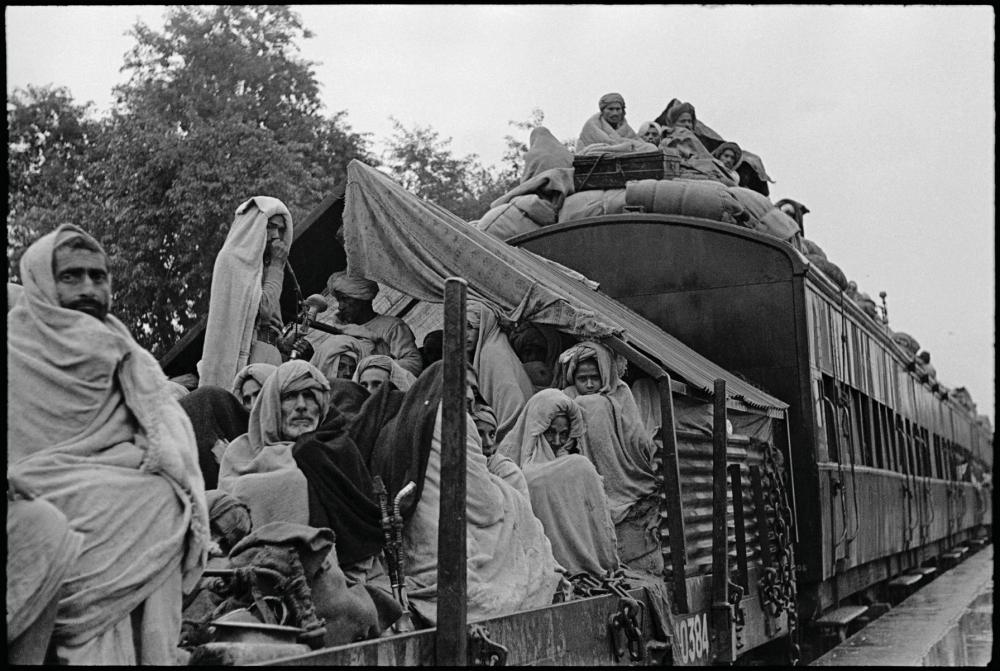Intentar ORO - Gratis
The enduring trauma of partition
BBC History UK
|September 2022
In 1947, British India was split in two, sparking a wave of violence that defined the new nations for decades. On the 75th anniversary of partition, Kavita Puri looks at how subsequent generations in south Asia and the UK have come to terms with its legacy

75 years ago, Britain's control over 400 million people on the Indian subcontinent ceased. It was the beginning of the end of the British empire. On 14 August 1947, people in Pakistan proudly marked the creation of the new dominion with a ceremony in Karachi, attended by the governor-general Muhammed Ali Jinnah. A day later, led by India's new prime minister Jawaharlal Nehru, Indians celebrated the British departure. British India had been carved up into two countries, Pakistan and India, largely along religious lines. The former included East Pakistan, separated from West Pakistan by almost 1,000 miles.
The movement for independence had begun many decades earlier. The British had formally arrived in India in the 1600s, establishing trading posts under the British East India Company, and India came under direct British rule in 1858. The nationalist movement began in the late 19th century and gained huge momentum following the Second World War - a conflict in which 2.5 million soldiers from what is today India, Pakistan and Bangladesh served.
As religious identity became stronger stoked, many commentators have argued, by British policies of divide and rule - two competing visions of independence emerged, which grew increasingly politicised along religious lines. The Congress Party, led by Nehru, wanted India to remain united in a secular state once the British left. But by 1940, Jinnah, leader of the Muslim League, felt that India's almost 100 million Muslims - a quarter of the population - would be marginalised by the Hindu majority. He wanted safeguards to be put in place, and even a separate homeland.
DIVIDED COMMUNITIES India and Pakistan after partition

Esta historia es de la edición September 2022 de BBC History UK.
Suscríbete a Magzter GOLD para acceder a miles de historias premium seleccionadas y a más de 9000 revistas y periódicos.
¿Ya eres suscriptor? Iniciar sesión
MÁS HISTORIAS DE BBC History UK

BBC History UK
On the skids
Richard Rodgers and Oscar Hammerstein II's smash musical Oklahoma! opened on Broadway on 31 March 1943.
1 min
Christmas 2025

BBC History UK
Small pleasures
Memory is imperfect, but what if you could get a professional model maker to recreate a moment from the past?
1 min
Christmas 2025

BBC History UK
Bath in five places
In the Georgian era, Bath became arguably Britain's most fashionable destination. KIRSTEN ELLIOTT promenades five historic highlights
3 mins
Christmas 2025

BBC History UK
End times
Why do civilisations that dominated their epoch fail? In an era of autocracy, climate change, the rise of Al and a first-hand understanding of how deadly pandemics can be, it's a question that seems pertinent.
1 min
Christmas 2025

BBC History UK
What are the origins of the Yule Lads?
To learn about the Jólasveinar (Yule Lads), we must start with their mother, the terrifying ogress Grýla. Her name appeared in Icelandic texts as early as the 13th century, although it wasn’t until later that those 13 mischievous lads became associated with her. Folk tales and poems tell how she descends from the mountains with an empty sack to stuff full of children. Grýla owns the monstrous Jólaköttur (Yule Cat), which roams the countryside on Christmas Eve, searching for children to gobble up if they're not wearing new clothes.
1 mins
Christmas 2025

BBC History UK
Santa Claus v Father Christmas
The true identity of the white-bearded, red-robed figure who fills children's stockings at Christmas has long been debated. Thomas Ruys Smith sizes up the merry contenders
8 mins
Christmas 2025

BBC History UK
Frontier friction
Set in Washington Territory in 1854, The Abandons is a Western that's unusual for having two matriarchs, women whose lives become entangled, at its centre.
1 min
Christmas 2025

BBC History UK
The Last Days of Pompeii: The Immersive Experience
Delve into the culture of daily Roman life, witness the momentous eruption of Mount Vesuvius, and follow its fallout in Immerse LDN's new exhibition. In a blend of cutting-edge technology and vivid storytelling, this exhibition launches visitors into Pompeii's rich history with recreations of the ancient city's beautiful pre-eruption landscape, a 360-degree virtual reality Roman amphitheatre experience, and a digital metaverse recreating Pompeii's 'Villa of Mysteries'.
1 min
Christmas 2025

BBC History UK
Elizabeth Marsh The corsair's captive
Taken hostage by a Barbary ship's captain in the 18th century, a young Englishwoman found herself fighting for her freedom in Marrakech. ADAM NICHOLS introduces a brave captive who later wrote a book about her dramatic experiences
6 mins
Christmas 2025

BBC History UK
29 DECEMBER 1170: Thomas Becket is murdered in Canterbury
Knights loyal to Henry II rid him of the “low-born cleric”
2 mins
Christmas 2025
Translate
Change font size
